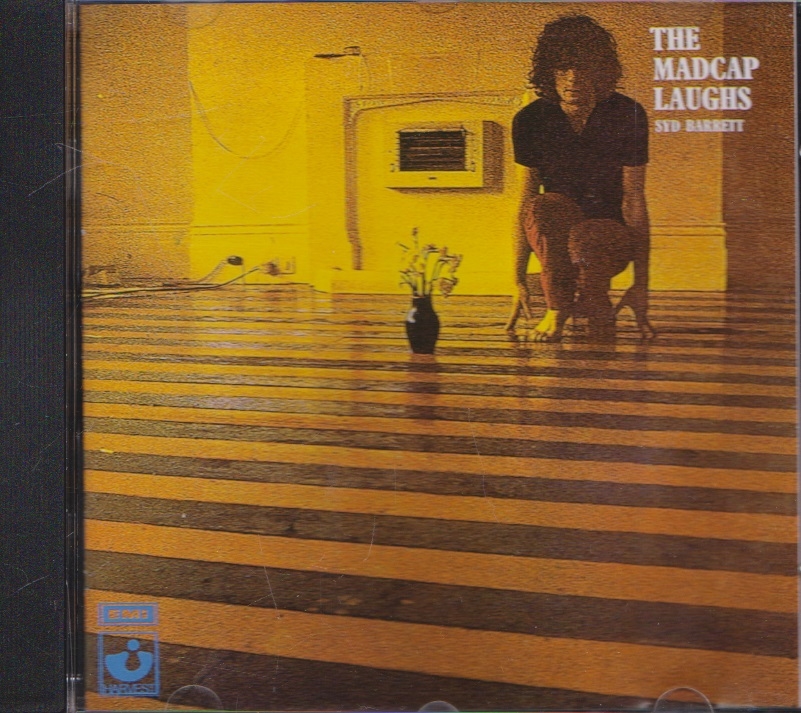

Gorgeous musical bed for a James Joyce poem. Straightforward desire ( “ I really love you and I mean you”), while the spellbinding ‘Golden Hair’ provides a Stereotypical of Barrett’s solo output, a drawn-out song sketch concerning Lyrics like “I was half the way down, treading the sand / please, please, lend a hand… won’t you miss me? / wouldn’t you miss me at all?” almost make the listener flinch. At the centre of this is the harrowingly self-aware ‘Dark Globe’, a first-person portrait of schizophrenia that’s far removed from the sense of whimsy that fans would normally have associated with Syd Barrett until this point. The full-band takes, such as the Sixties beat-influenced ‘Here I Go’ and the superficially bouncy ‘Love You’, occasionally rub up awkwardly against the stripped-back solo numbers upon which The Madcap Laughs is more famous. Un-connected) experiences with depression, schizophrenia and various other Sparkle killed off through his prodigious LSD consumption and his (not Haunted, tremulous and glazed over, the former mischievous and confident Virtually absent on these altogether more disturbed tracks, which sometimes onīorder on uncomfortable as a listening experience. Of wonder at the world that characterised his early Pink Floyd compositions Unpredictable talent that Syd Barrett was. Laughs truly does sound like the product of the kind of mercurial, Madcap Laughs, were eventually released in the first days of 1970.ĭifference between the professionalism of the Malcolm Jones-produced numbersĪnd those completed with Waters and Gilmour is noticeable, and makes the albumĪn uneven listening experience, But while undeniably unpolished, The Madcap

His former Pink Floyd bandmates Roger Waters and Dave Gilmour to help him finish Syd, however, was only semi-impressed with the results, and convinced Robert Wyatt of Soft Machine, and Jenner, with help from prog-rock enthusiastĪnd Harvest label boss Malcolm Jones, re-working and overdubbing the 1968 That involved Barrett writing new material with a backing band that included Started in the spring of 1969 after his gradual recovery, a two-pronged approach While sessions were semi-successful in the summer of 1968, the singer suffered a serious mental collapse and wound up in psychiatric care in his home city of Cambridge. This was unworkable in practice, and the group’s former manager Peter Jenner encouraged Barrett to get into the studio and write material for a solo album. But equally as important to his myth and legend are a pair of solo albums released in 1970, titled The Madcap Laughs and Barrett respectively and each bookending the sad event that happened that summer.Īfter being effectively forced out of Pink Floyd by April 1968, his on-stage behaviour and increasingly strange compositions having worn out his bandmates, Syd Barrett was initially to be kept on as a non-touring member of the group, writing but not appearing on stage, in much the same way that Brian Wilson had briefly functioned for The Beach Boys after his nervous breakdown post- Pet Sounds. The main foundation stone for Barrett’s reputation is, of course, Pink Floyd’s 1967 debut The Piper At The Gates Of Dawn, almost entirely the product of his creative vision. But, despite this paucity of actual product, his place in the pantheon of pop and rock’s greats is assured and unassailable. Including his work with Pink Floyd, Syd Barrett’s official output lasts a little over a couple of hours, in total, recorded in spontaneous bursts of barely controlled creativity that required the close collaboration of others to focus and rationalise. Mid-Seventies, rarely seen in public life. Retreating into his painting and leading a hermit-like existence by the Place – and Soft Machine drummer Jerry Shirley, a nervous and barely audibleīarrett lasted until the fourth song, ‘Octopus’, before taking off his acoustic Included Dave Gilmour – the man who had replaced him in Floyd in the first He had spent the intervening years getting himself back on his feet following a complete physical and psychological breakdown, induced by the stress of being the creative wheelhouse of one of Britain’s most exciting bands, coupled with his fragile sense of self-confidence and exacerbated by truly industrial use of psychedelics.Īlso a significant evening in terms of what transpired. This was a significant occasion in terms of British rock as a scene, with one of its most talked-about creative minds appearing outside of the context of Pink Floyd for the first time since his ejection from the band over two years before. On June 6 th, 1970, the stage at the Kensington Olympia in West London played host to the first live performance by Syd Barrett.


 0 kommentar(er)
0 kommentar(er)
